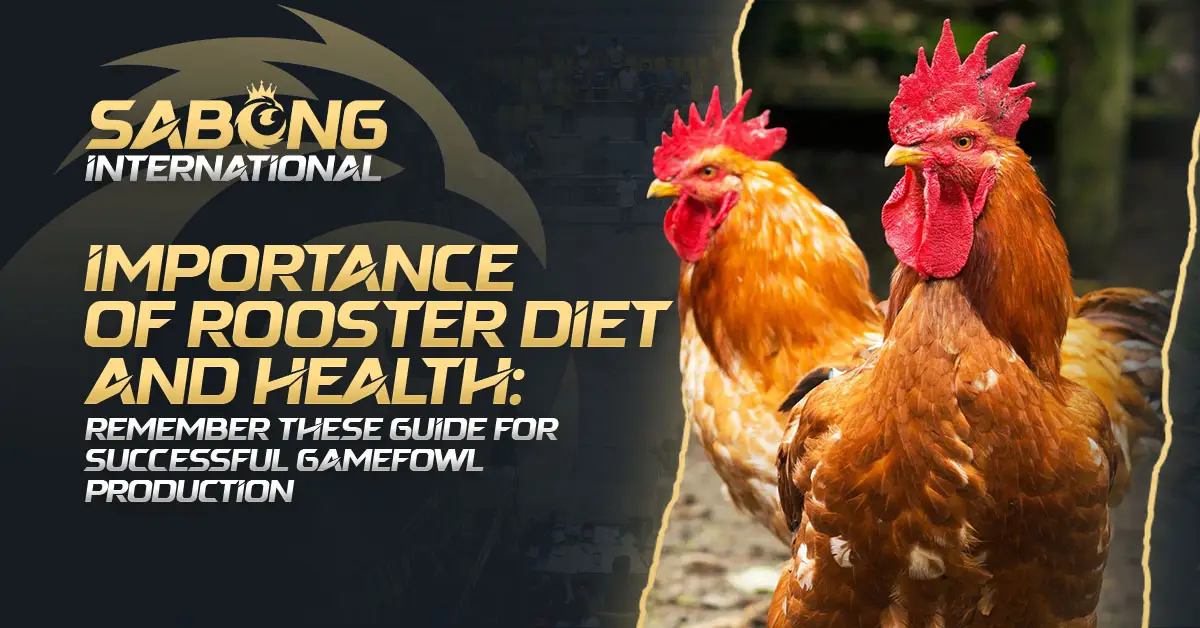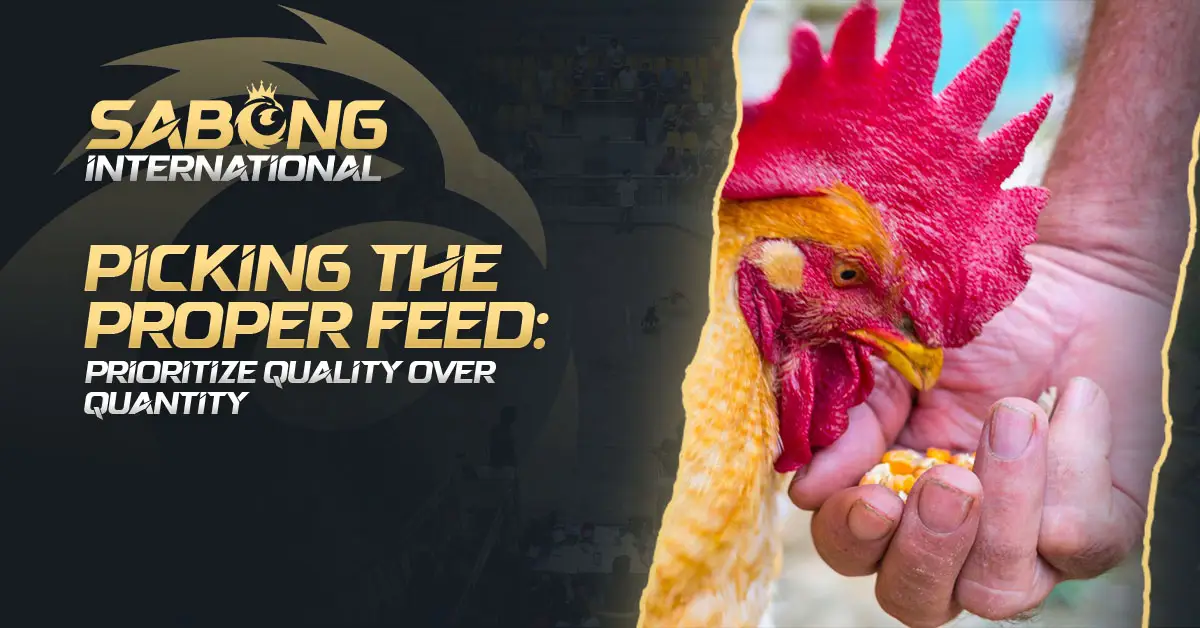Importance of Rooster Diet and Health: Remember These Guide For Successful Gamefowl Production

Roosters, the colorful and vivacious emblems of farms across the globe, are essential to the production of chicken. Both their well-being and the prosperity of any chicken farm depend on their strength and endurance.
It is essential for everybody who enjoys chickens to comprehend the importance of good feeding practices. This article explores the methods for improving rooster diet and health with the best diet and way of life.
A Balanced Diet: The Basis of Rooster Vitality
A healthy diet is essential for a rooster’s strength. Similar to humans, it needs a variety of vital nutrients in order to flourish. The components of their health are vitamins, minerals, proteins, and carbs.
It is possible to enhance each of these factors, which will impact their general well-being.
Proteins: Vital For Building Muscle
Proteins are vital for rooster diet and health because they aid in muscle development and repair. In commercial feeds, high-quality protein sources, including fish, poultry, and soybean meal, are frequently included.
These proteins make sure roosters are strong enough to do their everyday tasks.
Carbohydrates: Roosters' Primary Energy Source
Carbohydrates give roosters the energy they require for daily tasks. Carbs are abundant in grains, including corn, wheat, and barley. They guarantee roosters stay busy all day long by releasing energy gradually.
Minerals and Vitamins: Strengthening Bone Health and Immunity
In rooster diet and health, micronutrients, including vitamins and minerals, are essential. Vitamin A is essential for a rooster’s good vision, and vitamin D helps the body retain calcium, building strong bones.
Minerals like calcium and phosphorus are necessary for strong bones and the growth of chicken eggshells.
Picking the Proper Feed: Prioritize Quality over Quantity

Bet on Sabong with Sabong International now!
Quality is always more important than quantity when it comes to cock feed. Choose chicken feeds that are specifically designed for hens. These meals are made to satisfy their particular dietary needs.
Steer clear of feeds that have a lot of artificial additives and fillers in them as they have little nutritional benefit and may potentially hurt cocks over time.
Prevent Overfeeding: Typical Errors Made by All Breeders
Clean, Fresh Water: Frequently Disregarded, Always Important
The Value of Protein in a Rooster Diet and Health
Growth and Repair of Muscles
Color and Health of Feathers
Egg Production in Breeding Roosters
Establishing a Cozy Accommodation Space

Just like us, cocks require a calm, cozy space to unwind and sleep in to improve the rooster diet and health. For their welfare, the perfect roosting environment must be created. Here are some things to think about:
- Security: Make sure there are no predators in the roosting area. Strong coop walls and doors are essential for keeping cocks safe at night from possible predators.
- Airflow: A well-ventilated space keeps moisture and ammonia from accumulating, giving cocks a healthier atmosphere.
- Darkness: Like other birds, roosters require a night to rest. Provide nesting boxes or drapes over windows so they can curl up out of the path of light. Darkness encourages healthier sleep patterns by alerting cocks when it’s time to relax.
- Cozy Roosts: Make sure the roosts are spacious enough for them to comfortably perch. Foot injuries are avoided by rounded edges. Make sure that each cock has adequate room; cramming too many cocks together might lead to tension.
Stress's Effects on Rooster's Health
Stress has a major impact on a rooster’s health. Typical sources of stress are:
- Intense Crowding: Roosters need space. Coops that are too crowded cause tension and aggressive behavior that will affect the rooster diet and health.
- Sudden Changes: Stress can be brought on by abrupt environmental changes, including getting new cocks or moving into a new place. They adjust more rapidly when things are introduced and changed gradually.
- Anger-Related Conduct: Stress results from cockfights over dominance. Keep combative individuals apart to preserve peace among the flock.


